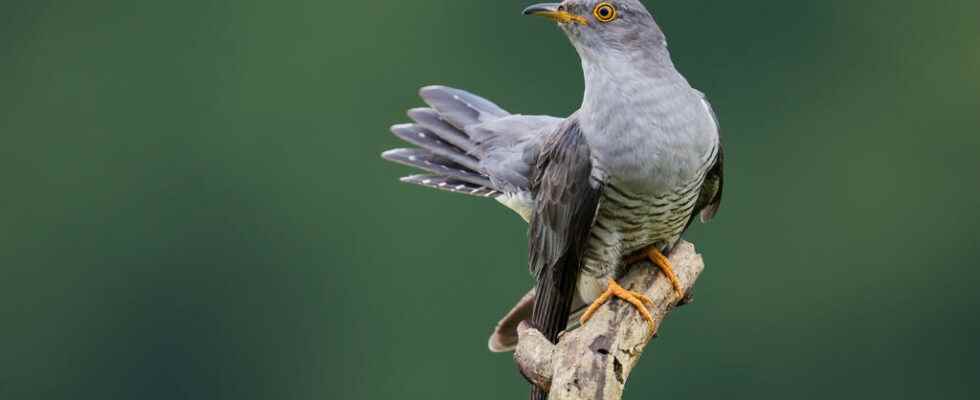Birds, insects, crustaceans… A brief overview of these animals which sometimes prefer to live with others, particularly followers of brood parasitism.
Their song announces the spring. Arrived in France not long ago, after an African winter, the cuckoo clocks are now in the middle of the mating season, recognizable by their famous “cuckoo”. And in a month, the females will lay their eggs, about ten, but in the others: no question of wasting time building a nest or assuming the joys of motherhood.
The cuckoo thus locates the nest of another species, and while Monsieur sometimes creates a diversion, Madame, quickly done well, in less than a minute, lays an egg which takes on the color of the eggs already in the nest. One of them is even stolen. We only see fire.
Hi it’s me
This is how a little cuckoo will be born, fed and housed by involuntary parents, who will lose their own offspring, because the little parasite gets rid of its brood brothers and sisters. The cuckoo does not share the nest of others. But parasitism does not always pay: the cuckoo only eats insects, and if its host family only eats seeds, it will starve.
About a hundred species of birds engage in what is called brood parasitism. This is also the case with fish, insects, wasps in particular, which lay their larvae in spiders, cockroaches or caterpillars. A discovery that shocked Darwin so much that the British biologist stopped believing in God!
hospitable badger
In the squatter family, here is Bernard the hermit. A crustacean that lives alone at the bottom of its shell – and even to make love, it does not come out, thanks to a penis of remarkable size. At birth, the hermit crab has no shell, so to protect its fragile abdomen, it retrieves an empty shell picked up on the beach at sunset. What if there isn’t? He will kill a mollusk to steal its shell.
But it’s not all trickery and predation in nature. The badger has a sense of hospitality, and silently welcomes foxes or rabbits into its burrow. In Australia, during the great fires of 2019-2020, the wonbats collected in their sophisticated burrow thousands of animals, lizards or rabbits, thus saved from the flames.
The question of the week
“Our house is burning, and we are looking elsewhere? »
Climate experts said it this week in the latest IPCC report: we have 3 years to act before it’s too late. Yes, “our house is burning”, as Jacques Chirac said, and more and more, in the original sense of the term: according to a recent American study, there have been three times more fires in the United States over the past twenty years, which are four times more destructive.
In France, the season has already started. At least thirty hectares of forest burned yesterday in the Southern Alps. Dozens of fires even since March throughout the country. The vegetation is already too dry, for lack of rain. Except in one department (Hérault), everywhere else France already lacks water.
